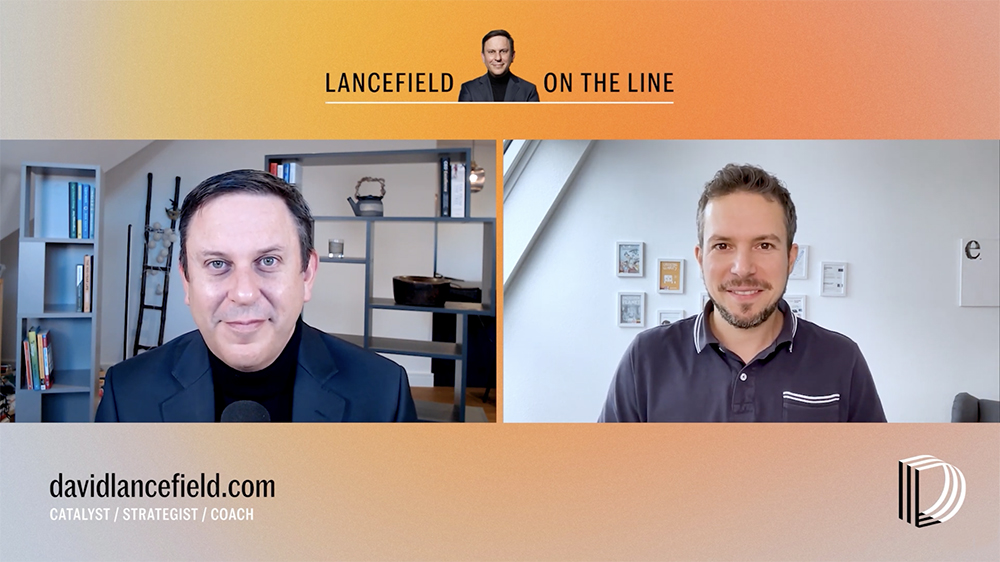Episode 73
Holger Nils Pohl: Tackling complex problems using visual thinking
Available on these channels and more
What type of stimuli helps you to think?
Leaders often shy away from using visual stimuli because it can be seen as gimmicky. But knowing where, when, and how to use it can transform how problems are solved.
My guest in this episode is Holger Nils Pohl, one of the best at using visual thinking to tackle complex problems. He discusses how to apply it, and the tools you can use to help you and your team use it in a meaningful way. He also shares how to avoid doing it badly, something many leaders can struggle with. He gives insight into how he uses his background in teaching within his work, how he deals with perfectionism and why autism is his superpower.
You’ll hear about:
- The importance of clarity in business
- Why multi-sensory stimuli amplify conversations
- The scientific nature of visual senses
- The three elements of Holger’s framework
- The role teaching plays in Holger’s work
- How to tame perfectionism
- How Holger prepares to work at his best
- Why autism is a superpower
- What impact does Holger want to have?
The best bits of these conversations are captured in my newsletter Strategic Leader.
More about Holger
Holger is a multi-passionate creative, visual strategist, author of non-fiction, kids’ and fantasy books, trainer, and autistic. He believes in the transformational power of visual tools and creates clarity for his clients, workshop delegates, readers, and viewers. He does this by reducing complexity to simple, actionable steps.
- Holger’s profile
- Holger’s books: Creating Clarity and The Wrong Planet
- Holger’s courses
“A lot of the struggles we have are actually caused by missing clarity.”
Holger Nils Pohl, trainer & author
VIEW RUNNING ORDER
| 03.13 | The importance of clarity in business. |
| 07.58 | Why multi-sensory stimuli amplify conversations. |
| 16.33 | The scientific nature of visual senses. |
| 18.50 | The three elements of Holger’s framework. |
| 23.37 | The role teaching plays in Holger’s work. |
| 28.04 | How to tame perfectionism. |
| 32.23 | How Holger prepares to work at his best. |
| 34.21 | Why autism is a superpower. |
| 39.38 | What impact does Holger want to have? |

Ludmila Praslova: Tapping into our brainpower

Steven Rogelberg: Making meetings count

Caterina Kostoula: Crafting a powerful vision

Tony Martignetti: Making meaningful connections

Oleg Konovalov: Leading by nature

Matt Abrahams: Talking smarter in the moment

Alex Edmans: Dealing with lies

Pia Lauritzen: Connecting through questions


